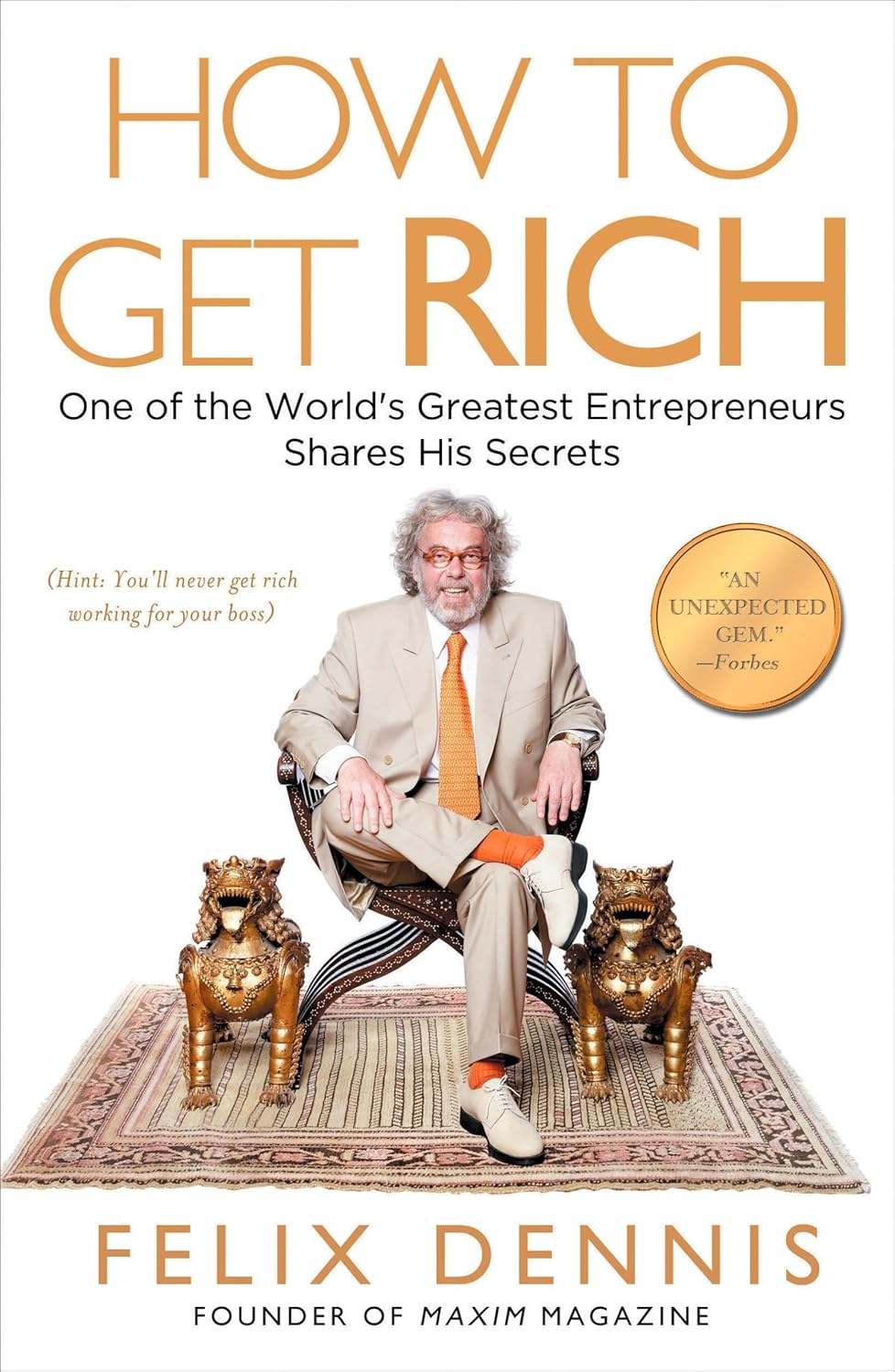Felix Dennis Part 1: Getting Going as a Founder
Today, I started reading a book that’s outside my norm. Felix Dennis, the founder of Dennis Publishing and Maxim magazine, wrote How to Get Rich: One of the World's Greatest Entrepreneurs Shares His Secrets. The book is a collection of lessons Dennis learned during his journey. The title isn’t my favorite, but it matches the author’s personality.
Instead of how to get rich, I think this book shares how to succeed as an entrepreneur. I used this mental framing as I read the book. I’ll swap the two terms in this post.
Here are my takeaways from the first third of the book:
Part One: Pole Positions
- Young, penniless and inexperienced – People in this state are more likely to succeed for a few reasons. Because they lack experience, they’re likelier to learn new problem-solving methods. They have more stamina. Their risk tolerance is higher because they have almost nothing to lose. Dennis suggests that seasoned professionals considering entrepreneurship partner with someone young, broke, and inexperienced.
Part Two: Getting Started
- Fear of failure – People often fail to launch a company because they’re afraid. Failing publicly highlights mistakes and errors in judgment to others, which is embarrassing. I believe that entrepreneurs will experience a lot of failures as they experiment, so a thick skin and viewing failures as opportunities to learn are essential. Also, winning fixes everything. Success is what people remember, not failure.
- New industries – New or rapidly growing industries increase your chances of success. Often, more risk capital is available from investors seeking large returns, which can lead to founders maintaining more control. Not much is known in new industries, so you can establish yourself as an expert quickly (if you work to learn), and a rising tide masks mistakes.
- The trifecta – Look for opportunities that align with your inclinations, aptitude, and fate. Inclinations are your natural interests. Aptitude is something you’re naturally good at (ask others if you’re unsure). Fate is luck or serendipity. When an opportunity aligns with all three, ignore the naysayers and quickly seize it before it’s gone.
- Reinforcing failure – A common start-up error. Knowing whether to keep pushing when something isn’t working or give up is difficult but important. Success may be just around the corner, or it may never come. Dennis believes timing plays a big part in success. Looking at the data beneath the surface level for signs of being too early or too late can help you avoid reinforcing a failure.
- Thinking small and acting big – Another common start-up error. Never disregard bold or new ideas (thinking small). Never think you’re above doing the things that lead to your success (acting big). Dennis regretfully shares a crazy period in his life when he spent over $100 million within ten years thinking small and acting big. Keep doing the things that led to your success (acting small) and thinking of bold ways to succeed (thinking big).
So far, this book is colorful and full of entrepreneurial wisdom. I’m looking forward to finishing it.
Prefer listening? Catch audio versions of these blog posts, with more context added, on Apple Podcasts here or Spotify here!




